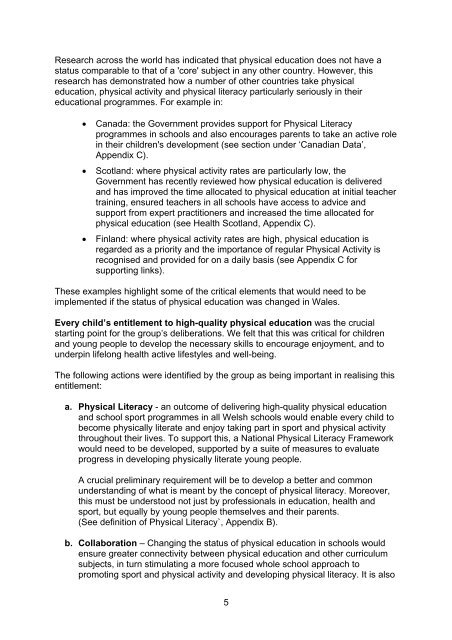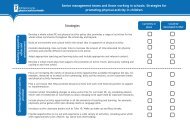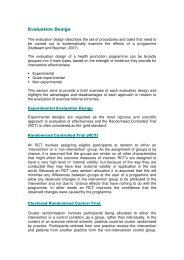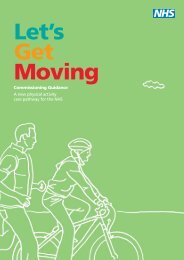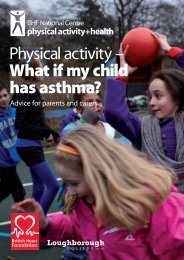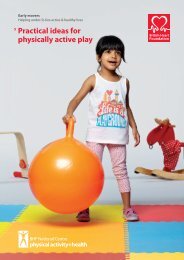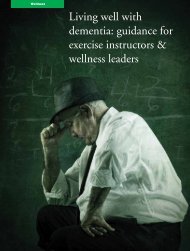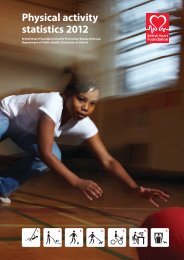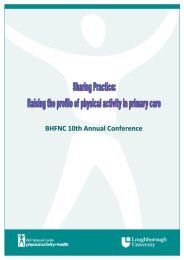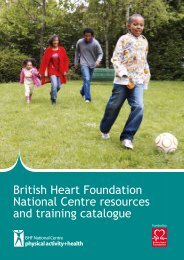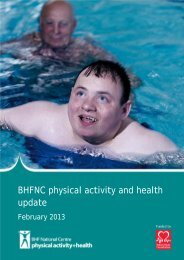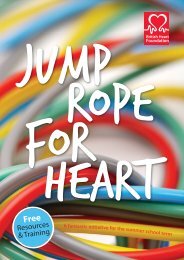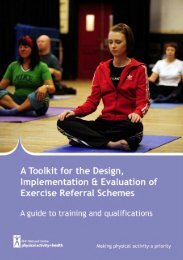Physical Literacy - Sport Wales
Physical Literacy - Sport Wales
Physical Literacy - Sport Wales
Create successful ePaper yourself
Turn your PDF publications into a flip-book with our unique Google optimized e-Paper software.
Research across the world has indicated that physical education does not have a<br />
status comparable to that of a 'core' subject in any other country. However, this<br />
research has demonstrated how a number of other countries take physical<br />
education, physical activity and physical literacy particularly seriously in their<br />
educational programmes. For example in:<br />
• Canada: the Government provides support for <strong>Physical</strong> <strong>Literacy</strong><br />
programmes in schools and also encourages parents to take an active role<br />
in their children's development (see section under ‘Canadian Data’,<br />
Appendix C).<br />
• Scotland: where physical activity rates are particularly low, the<br />
Government has recently reviewed how physical education is delivered<br />
and has improved the time allocated to physical education at initial teacher<br />
training, ensured teachers in all schools have access to advice and<br />
support from expert practitioners and increased the time allocated for<br />
physical education (see Health Scotland, Appendix C).<br />
• Finland: where physical activity rates are high, physical education is<br />
regarded as a priority and the importance of regular <strong>Physical</strong> Activity is<br />
recognised and provided for on a daily basis (see Appendix C for<br />
supporting links).<br />
These examples highlight some of the critical elements that would need to be<br />
implemented if the status of physical education was changed in <strong>Wales</strong>.<br />
Every child’s entitlement to high-quality physical education was the crucial<br />
starting point for the group’s deliberations. We felt that this was critical for children<br />
and young people to develop the necessary skills to encourage enjoyment, and to<br />
underpin lifelong health active lifestyles and well-being.<br />
The following actions were identified by the group as being important in realising this<br />
entitlement:<br />
a. <strong>Physical</strong> <strong>Literacy</strong> - an outcome of delivering high-quality physical education<br />
and school sport programmes in all Welsh schools would enable every child to<br />
become physically literate and enjoy taking part in sport and physical activity<br />
throughout their lives. To support this, a National <strong>Physical</strong> <strong>Literacy</strong> Framework<br />
would need to be developed, supported by a suite of measures to evaluate<br />
progress in developing physically literate young people.<br />
A crucial preliminary requirement will be to develop a better and common<br />
understanding of what is meant by the concept of physical literacy. Moreover,<br />
this must be understood not just by professionals in education, health and<br />
sport, but equally by young people themselves and their parents.<br />
(See definition of <strong>Physical</strong> <strong>Literacy</strong>`, Appendix B).<br />
b. Collaboration – Changing the status of physical education in schools would<br />
ensure greater connectivity between physical education and other curriculum<br />
subjects, in turn stimulating a more focused whole school approach to<br />
promoting sport and physical activity and developing physical literacy. It is also<br />
5


